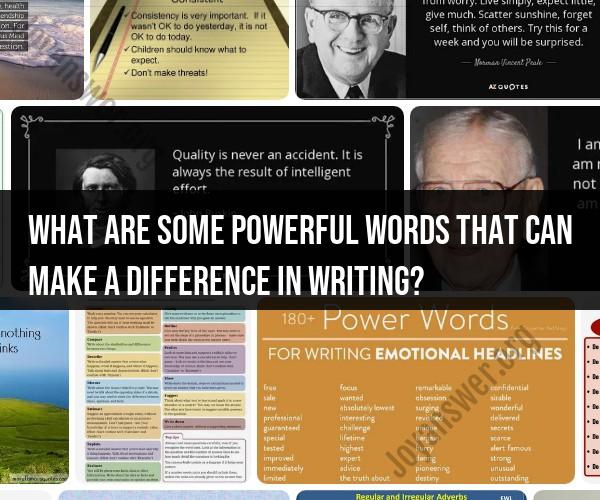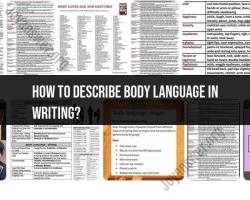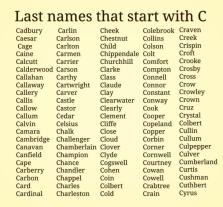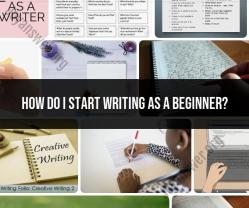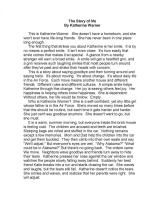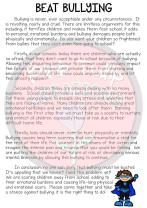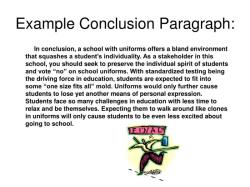What are some powerful words that can make a difference in writing?
Using powerful words in your writing can make your content more impactful and engaging. Here are some categories of powerful words along with examples:
1. Emotionally Charged Words:
- Enraged: Instead of "angry," say "enraged."
- Ecstatic: Instead of "happy," say "ecstatic."
2. Action Words (Verbs):
- Catalyze: Instead of "start," say "catalyze."
- Transform: Instead of "change," say "transform."
3. Vivid Descriptive Words (Adjectives):
- Luminous: Instead of "bright," say "luminous."
- Serene: Instead of "calm," say "serene."
4. Persuasive Words:
- Compelling: Use to emphasize the power of an argument.
- Irrefutable: Use to suggest that something cannot be disproven.
5. Expressing Certainty:
- Undoubtedly: Use to indicate absolute certainty.
- Incontrovertible: Use to suggest something cannot be disputed.
6. Conveying Importance:
- Imperative: Use to stress the importance of an action.
- Crucial: Use to highlight the significance of a matter.
7. Time-Related Words:
- Instantaneously: Instead of "immediately," say "instantaneously."
- Eternally: Instead of "forever," say "eternally."
8. Exaggeration (for Impact):
- Astonishing: Use to emphasize how amazing something is.
- Overwhelming: Use to stress the extent of a situation.
9. Words with Historical or Mythological Allusions:
- Herculean: Suggests a task of great difficulty.
- Odyssey: Implies a long, adventurous journey.
10. Onomatopoeia:
- Buzzing: Use to describe a loud and active environment.
- Whispers: Use to create an atmosphere of secrecy.
11. Sensory Words:
- Velvety: Use to describe a texture.
- Aroma: Use to evoke a sense of smell.
12. Contrast Words:
- Disparaging: Use to contrast with something positive.
- Dichotomy: Use to describe a clear division.
13. Words of Empowerment:
- Resilient: Use to describe someone's ability to bounce back.
- Empower: Use to indicate giving someone strength or authority.
14. Intriguing Words:
- Enigmatic: Use to describe something mysterious or puzzling.
- Paradox: Use to suggest a situation with conflicting elements.
15. Words of Unity and Harmony:
- Cohesion: Use to describe the unity of a group.
- Harmonious: Use to suggest a pleasant blend or balance.
Remember that the choice of words should align with your writing's tone, purpose, and audience. Using powerful words should enhance your message, not overwhelm it. Balance is key in effective writing.
